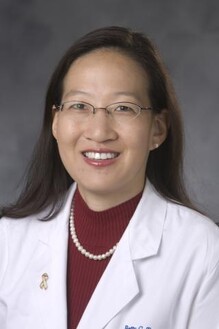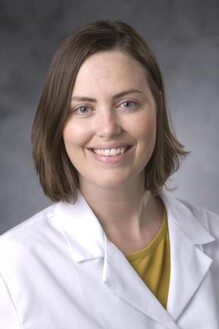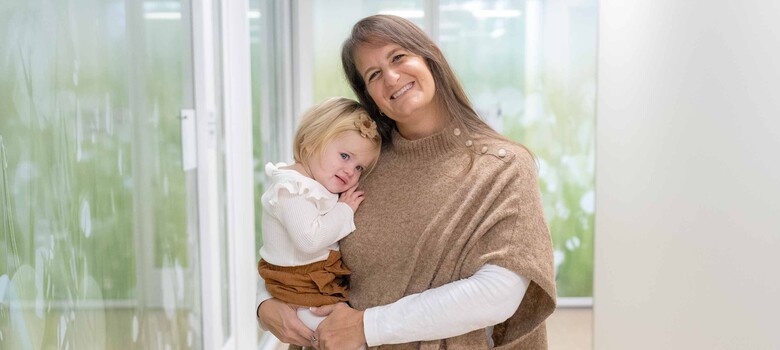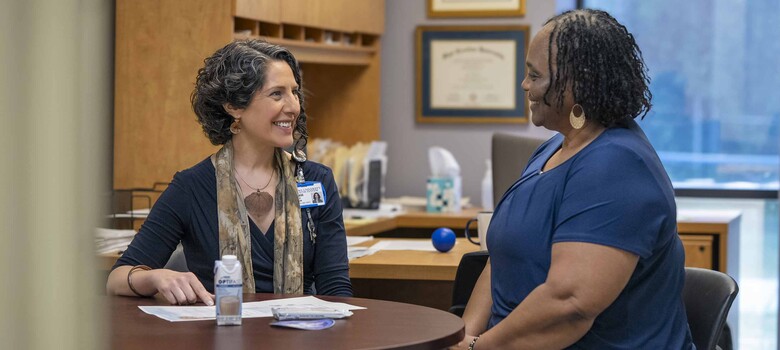 From the DukeHealth.org archives. Content may be out of date.
From the DukeHealth.org archives. Content may be out of date.
Lung Cancer Screening Catches Early Lung Cancer

Motorcyclist Ronald Knowles rides again after beating lung cancer
Ronald Knowles was smoking two to three packs of cigarettes a day and coping with COPD (chronic obstructive pulmonary disease) when he went for his first appointment at Duke Primary Care. The avid biker may not have known it, but his 50-year smoking habit and lung disease put him at high risk for lung cancer.
Physician assistant Leanne Owens knew it, and recommended that 68-year-old Knowles of Durham undergo a spiral computed tomography (CT) scan. Studies show it’s more effective at finding lung cancer in heavy smokers earlier than a chest x ray. That’s important because lung cancer is the leading cause of death from cancer in the U.S. Most cases are caused by smoking. The earlier it’s found, the easier it is to treat.
Lung cancer screening is recommended for anyone between the ages of 55 and 80 who are either current smokers or quit within the past 15 years and have at minimum 30 “pack years” or more smoking history; one pack-a-day for 30 years or two packs-a-day for 15 years. Duke thoracic surgeon Dr. Betty Tong, MD, said patients referred for early screening also have to be asymptomatic, and well enough to undergo potential treatment.
“Unlike mammography or colon cancer screening, lung cancer screening requires a shared decision making visit in advance,” she explained.
Lung Cancer Patients are in Good Hands at Duke
When patients come in for lung cancer screening, they learn about its risks and benefits. Patients who smoke are counseled on how to quit. If patients are diagnosed with lung cancer after a screening, Tong said they are in good hands at Duke.
“Duke is a pioneer in minimally invasive surgery for lung cancer which helps people recover much faster with less pain and better quality of life than traditional surgery,” she said. “In addition, there are several new immunotherapies that are either being studied or administered as standard therapies for more advanced lung cancers.”
Lung Cancer Screening Detected Knowles’ Cancer at an Early Stage
On the day of his 2012 scan, Knowles said, “My surgeon, Dr. Mark Onaitis came out afterward to show me the screening results and explained to me, ‘Mr. Knowles you’ve got cancer in your left lung, top lobe’.” The doctor also told him he could see lung damage from acid reflux. “He said, ‘you know I’ve got a cure for both of them; we’ll start with the cancer first and then we’ll work on the acid reflux. You’re the boss. How’s tomorrow for surgery?’”
Knowles went through the surgery, and did not have to follow up with chemotherapy or radiation treatments. At the same time, his wife Brenda was undergoing treatment for breast cancer. Today they’re both cancer-free.
“The PA that recommended all this to me saved my life,” he said. “The Duke Cancer Center took care of us and we’re both so grateful,” said the grandfather of six.
A Strong Proponent of Smoking Cessation and Lung Cancer Screening
Like most bikers, Knowles is a member of a motorcycle club, although his is a bit different. “I’m the president of the Sons of Arthritis, Ibuprofen Chapter, of which we have six members,” he said with a chuckle.
Knowles quit smoking the day he saw pictures of his diseased lungs. “I quit. Right then. I haven’t smoked a cigarette since. It was hard. It was just the fear I think more than anything else. It will scare you to death when you see that cancer.” Seeing patients in the hospital coping with stage four lung cancer also impacted his decision to quit.
Less than a year after surgery Knowles took off in his shiny customized Kawasaki Vulcan 1500 cruiser on a 10-day trip from Kansas City to Minnesota, North Dakota, South Dakota, and Wyoming. He toured Mount Rushmore, the Crazy Horse museum, and Badlands National Park with some friends and “had a magnificent time.”
Knowles, who follows up with Tong annually, has also become a strong proponent of smoking cessation and lung cancer screening. He urges his friends, some of whom are heavy smokers, to get checked out and assures them “it’s not painful at all.”




